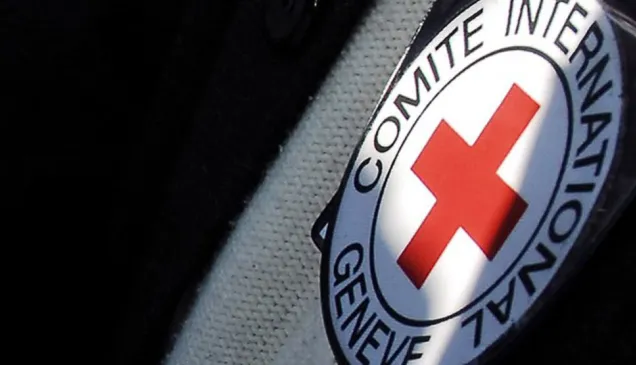United Nations International Conference in support of Israeli-Palestinian Peace
Statement by Robert Mardini, ICRC Regional Director for the Near and Middle East, UNOG, 29-30 June
Honorable representatives of the United Nations, of the State of Palestine and other Governments, Excellencies, ladies and gentlemen. It is an honor to be here today to address such an important and influential audience.
Sadly, we are all aware of the cost of the protracted conflict in Israel and the Occupied Palestinian Territories. It is tragically high.
First the human cost: thousands of women, men and children have endured hardship, drama and struggle. Some have lost their lives or been wounded. Others lost contact with their loved ones, many have been arrested and others lost their land. An entire generation is now living without any perspective for the future, its hopes decimated, its dreams diluted. Too many people – on both sides, Palestinian and Israeli alike– live in constant fear of falling in harm's way.
This ongoing conflict also has a massive material cost. We could go on listing the numerous examples of homes destroyed, of fields and orchards flattened, and of civilian facilities – vital ones such as power stations and hospitals – severely damaged by armed conflict and violence.
Third, there is also the psychological cost: after almost seven decades since the creation of the State of Israel, two peoples still see each other as the arch enemy to fight and defeat. This is particularly true for the younger generations, who have faced the sole and tragic logic of confrontation and division for their entire lives.
As a humanitarian worker and as someone who grew up in a country at war, I cannot but stress the terribly high cost of this unending suffering.
The International Committee of the Red Cross has been working in the Palestinian Territories and in Israel since 1948, and established a permanent presence in 1967. For the last four decades, we have worked tirelessly to alleviate the suffering of the civilian population affected by the conflict in this context.
Respect for International Humanitarian Law remains a top priority in today's world, where modern warfare always results in a heavy toll on civilian life. In Israel and the Occupied Territories, the ICRC has kept its role as guardian of IHL, as mandated by the States through the Geneva Conventions.
This wasn't done from an ivory tower in Geneva or New York, but with a patient work of dialogue, trust building and field presence of our committed staff. Discreet, yet strong and frank relations were built with all the parties – Israeli and Palestinian alike.
Thanks to the good relations established over several decades, the ICRC also managed to bring assistance to the victims. Whether sending in expert surgeons to deliver emergency care or war surgery, rehabilitating key electricity and water networks, or helping farmers build new sources of income, the ICRC carried out its humanitarian endeavor during the calmer times and in the midst of heavy fighting.
We want to continue doing that as long as needed. We will not shy away from reminding all weapon bearers, no matter where their loyalties lie, that civilians and persons no longer fighting must be spared in all circumstances. Together with our sister organizations – The Palestine Red Crescent Society and the Magen David Adom, we remain firmly committed to help those in need.
But, honorable hosts and guests, humanitarian action, even when efficient and widely accepted, cannot provide what the affected people need most.
More than new houses, new hospitals and new schools, more than compliance with international humanitarian law and reinforced security measures, what civilians in Israel and Palestine really need is something even more precious: hope.
Hope for a better future without bloodshed, where security, education, freedom of movement and wellbeing are available to all. Parties to the conflict and the international community have the duty to break the vicious cycle of violence and closures. Excellencies: it is imperative that a political solution is found to break the current deadlock.
This is your task and responsibility. You can take the humanitarian commitment of the ICRC for granted, but once again, please do not leave us alone. It is high time to ignite a meaningful political process. I sincerely hope that the discussions you will have here will pave the way for a better future.
More than bold promises, people living in Israel and Palestine need more than ever that promises and intentions materialize in concrete and positive actions.



